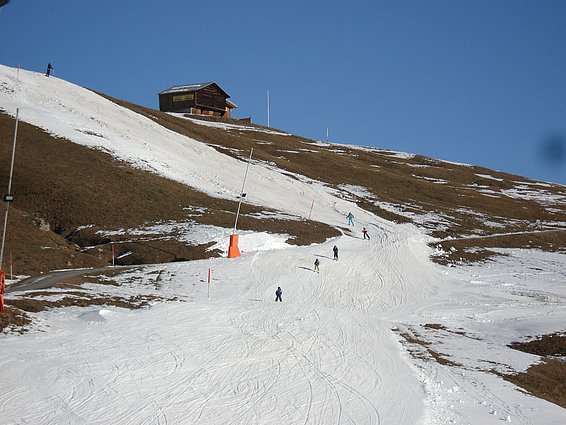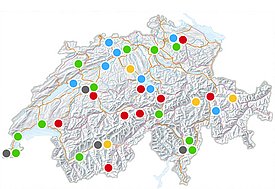Due to climate change, heavy precipitation, heat and droughts are becoming more frequent and intense. We therefore research how the population, politics and economic sectors such as tourism can adapt to the consequences of climate change.
Contents ¶
Climate change and its consequences present us with a number of challenges that require different responses. Especially in the climate-sensitive Alpine region, heavy precipitation, heat and droughts will occur more frequently and more intensively. As a result, people’s health is increasingly at risk, as well as damage to buildings and infrastructure.
Further, those sectors sensitive to weather and snow conditions will have to adapt their practices, something which has positive potential but also poses risks. Examples are the energy sector with changing river flows and water volumes, tourism with changing snow lines, and uncertain weather conditions the, insurance industry with natural hazards, as well as agriculture with dryer, warmer summers, while the forestry sector will have to deal with disasters and droughts.
Sustainable strategies ¶
Politics, the economy and society must face the challenge of developing economically feasible climate change adaptation strategies which are broadly acceptable at different levels, economically viable and effective.
Facilitating this is the goal of our economic and social science research. We investigate questions such as how spatial planning, tourism and forestry can adapt to climate change. We are also investigating which factors inhibit or promote the implementation of adaptation strategies in practice.
At many levels, policymakers and administrations are working towards adaptation to climate change - keeping track of the situation is difficult. We have therefore developed an interactive website (GoApply) to map the existing activities and their scientific and political foundations in the Alpine countries and to demonstrate their networking. This tool makes it possible to take a look at climate adaptation in neighbouring countries, identify possible gaps and learn from each other.
Analysing existing projects ¶
At national level, the FOEN pilot programme «Adaptation to climate change» provides financial support for innovative adaptation projects in various regions. WSL was also involved in a number of such pilot projects. We analyse these projects and assess which climate adaptation strategies are successful. This helps local and regional actors to decide which path is the most promising for them in the future.


